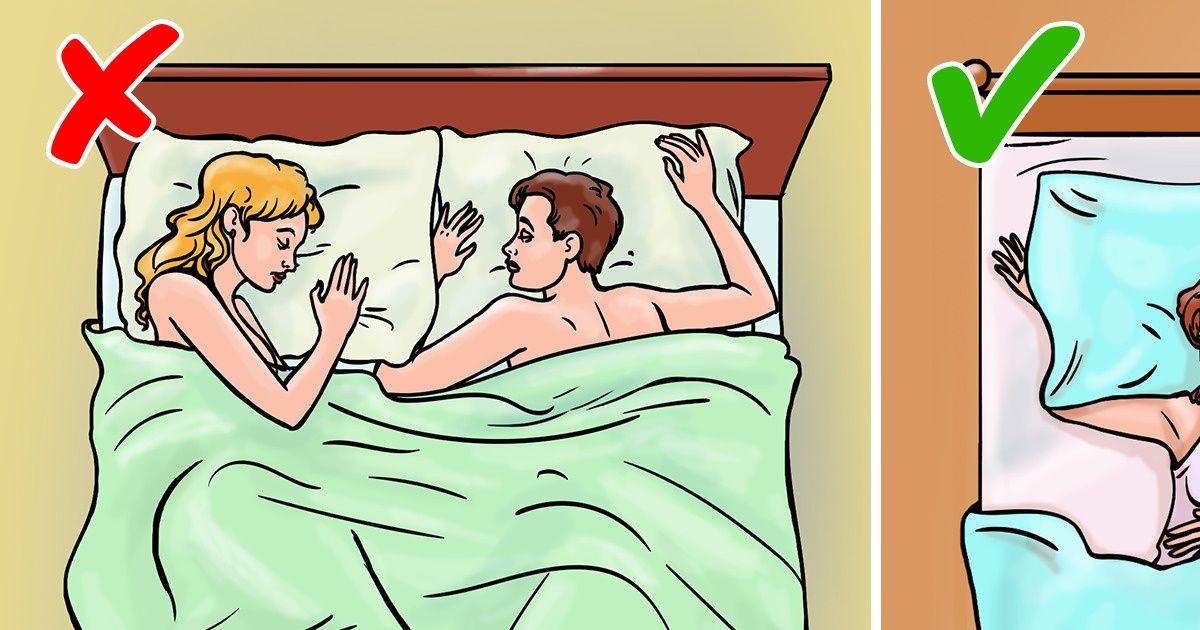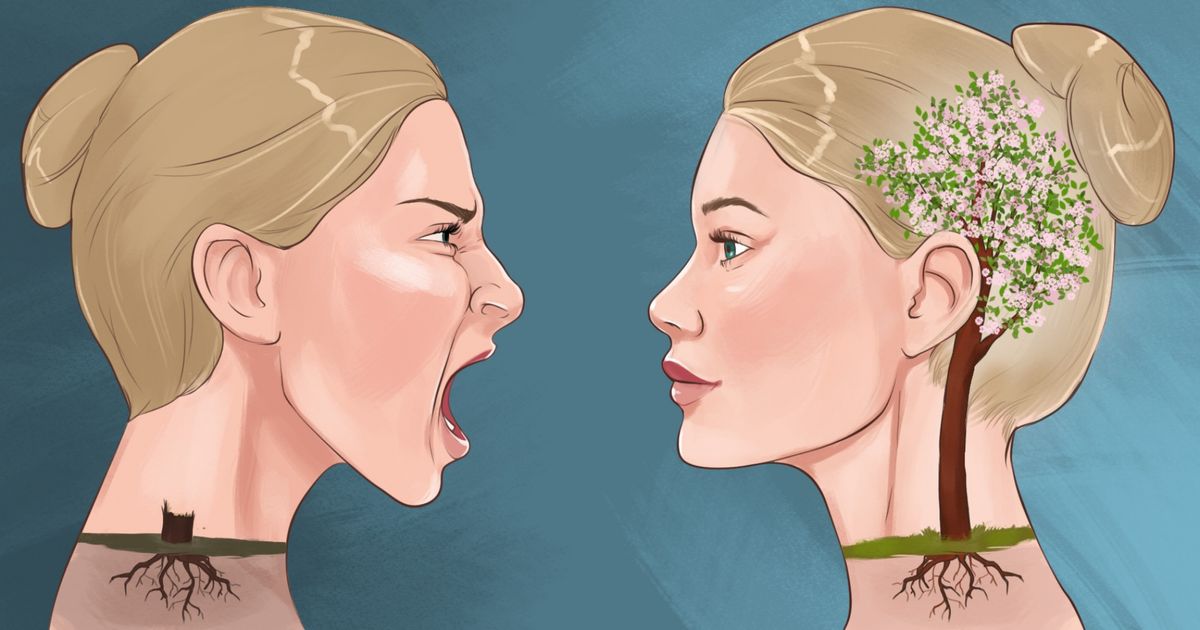We often explain a person’s extravagant actions by their character. But what if there is much more hidden behind it? Leading American psychotherapists Aaron T. Beck and Arthur Freeman revealed some secrets of the human temperament in their book Cognitive Therapy of Personality Disorders.
We carefully studied the work of these scientists and has put together a guide to 6 personality traits that can cause problems for people if they are not controlled.
6. Negligence

This category includes people who always want to rest more and work less. Of course, it is a simple human wish, yet some of us often go too far.
For example, if a company employee took multiple sick leaves in a year, took vacations and many unpaid days off, and was also late for work many times, a psychologist would likely diagnose them with an antisocial personality disorder. However, there are a few more symptoms this causes:
- Frequent and unmotivated lies
- Desire to live at the expense of others.
- Frequent layoffs without additional employment plans, which means “going nowhere”
- Make unplanned purchases and therefore spend money (a person would buy the necessary products, but would buy a new game for their Play Station)
Time and reward management can help combat antisociality. It may be a good idea to write down what gift you are giving yourself for this or that achievement (for example, stick to the plan for a few days) and stick to the schedule for at least a month to develop a habit.
Also, when suffering from these disorders, psychologists recommend exercise, “the overview of choices.” When writing a problem and considering all the possible ways to solve it, along with their advantages and disadvantages, it can be helpful to make rational decisions.
5. Shyness
Encouraged shyness can evolve into total isolation and an unwillingness to bond with the outside world over time.
People who are on the verge of a mental disorder stop feeling strong emotions and try to limit themselves to contacting other people, which is why they usually opt for teleworking or other activities that are not related to communication.
Hypertrophied introversion leads to schizoid personality disorder, which has the following symptoms:
- Indifference to criticism or praise.
- The absence of close friends or the presence of only one close friend
- A tendency to dream often and unreally.
- A hypersensitivity that a person feels scared to show to their surroundings
It is possible to prevent the disease with the help of various methods. One of the most useful is any group activity, such as drawing classes, learning a foreign language, attending yoga, or pilates training.
4. Impulsiveness and Temper
A person who is not trying to control their anger is at great risk of developing a borderline personality disorder.
One of the typical symptoms of such a disease can be an acute and unmotivated change of opinion towards completely opposite opinions.
Let’s say that today you think that fried eggs affect your stomach a lot and you hate them, but the day after tomorrow you start cooking them for breakfast.
Of course, a simple impulsiveness does not hide any danger. However, if this occurs in conjunction with temperament and the following symptoms, it is worth paying attention to:
- Unstable friendships and romance
- Frequent and thoughtless waste of money (you were going to buy a coffee machine, but bought a second TV, for example)
- Careless driving on the brink of an accident
- A change in mood for no apparent reason and a feeling of chronic boredom.
Good prophylaxis for this would be anger management and various training on self-identification. Self-control with small rewards can also help.
For example, if you are going to buy a coffee machine and you are going to buy it without taking half the items out of the store, reward yourself with something you’ve always dreamed of.
3. Self-Reproach

People with a tendency to self-reproach can easily be called ostriches because they tend to hide their heads in the sand whenever they want to hide from trouble.
This syndrome in psychology is called elusive personality disorder. In advanced cases, panic attacks, depression, and sleep disorders may appear.
Self-criticism is helpful in small doses and leads us to develop further, but it is extremely dangerous for mental health in excessive amounts. You should feel anxious if you notice the following:
- strong and instant resentment of criticism or disapproval;
- prevent new contacts from reaching the absurd (for example, a refusal to promote if communication with new people is necessary);
- exaggerating potential difficulties, physical dangers, or the risk of common actions;
- preventing himself from communicating with people for fear of saying the wrong thing.
Denying false predictions will be a useful exercise in this case. You must write down your predictions about an action that you will take.
For example, “If I go to an unfamiliar store late at night, I will be robbed.” After doing this, write down the result.
So the next time you have negative questions or predictions about something, open your notebook and read your notes to make sure nothing scary happens.
2. Suspiciousness
We are all paranoid from time to time and this is quite normal. But some people go beyond all possible limits of their suspicions: they log into social media accounts, eavesdrop on phone conversations, and even hire private investigators.
A person whose suspicion makes them perform desperate actions may be suffering from a paranoid personality disorder. This disorder accompanies the following symptoms:
- Irrational mistrust of your partner
- Look for hidden meanings in people’s common actions (for example, your neighbor knocks on the door especially to annoy you)
- A tendency to find everyone around you guilty
- The absence of a sense of humor and the inability to see funny things in everyday situations.
A good method to combat chronic mistrust is to create a list of people you know and place plus signs next to their names as long as they meet your expectations.
For example, you were afraid that your boyfriend would forget about you at a corporate party, but they kept paying attention to you throughout the night.
So the next time you suspect something, just look at the number of plus signs and your mistrust will disappear.
1. Heightened Self-esteem

Heightened self-esteem is much better than self-censorship, but it also has some limits. The feeling of being smart, attractive, and simply the best of the best can bring a person with Narcissistic Personality Disorder.
With this disorder, it is very easy to fall into depression, have a feeling of inferiority, and other “benefits” that people with high self-esteem often have. These are the symptoms that follow this disorder:
- Hidden or overt anger in response to any criticism.
- Use people to achieve their own goals
- Expect a special attitude towards yourself (for example, everyone should allow you to be first in line, even if no one knows why)
- Strong envy and constant dreams of unthinkable riches.
The main problem with narcissism is the mismatch of expectations and reality that produces side effects such as feelings of worthlessness, frequent mood swings, and fear of embarrassment.
One of the exercises to combat the disorder is to lower the wish table to an achievable one. For example, buy a good pair of shoes at the nearest shoe store instead of dreaming about a fancy car.
Have you ever faced a situation where a personality trait prevented you or your friend from leading a normal life? Share your experience with us in the comments!









